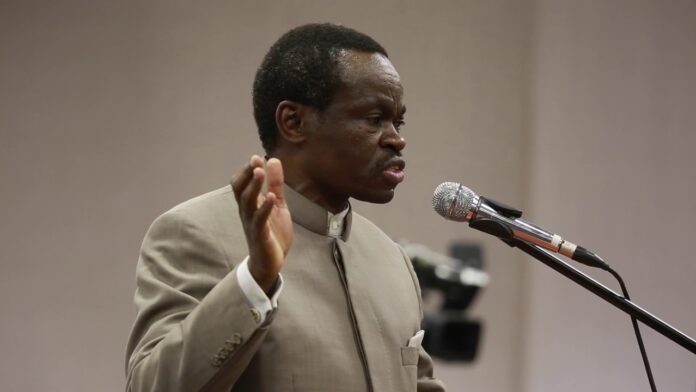LAGOS: Kenyan pan-Africanist and renowned human rights advocate, Professor Patrick Lumumba, has sharply criticized Africa’s persistent failure to provide stable electricity, describing the continent’s energy crisis as a fundamental obstacle to its development and global competitiveness.
Speaking at the 2025 Independence Day Lecture and Awards Night in Lagos, Lumumba questioned why a continent so richly endowed with natural resources continues to struggle with something as basic as constant power supply.
Electricity is not rocket science, yet for some reason we are unable to supply stable electricity. Who cursed us? Who bewitched us that we cannot do what must be done? These are the questions, Lumumba lamented.
The outspoken scholar described electricity across Africa as epileptic, recalling that within an hour of arriving in many African hotels or public facilities, outages are the norm.
He warned that without a reliable power grid, Africa cannot hope to achieve the ambitious goals of the African Continental Free Trade Area (AfCFTA), which relies heavily on industrialization and regional value chains.
Lumumba stressed that Africa’s inability to generate and distribute energy at scale has condemned its industries to inefficiency, while households continue to depend on generators, kerosene, and firewood fuels that undermine both economic growth and environmental sustainability.
Placing Nigeria at the heart of Africa’s destiny, Lumumba insisted that the continent’s most populous nation must take responsibility for leading economic transformation.
should be the leader economically. When Nigeria debates with South Africa or Egypt over size of economies, I laugh. It is like a debate between two dwarfs as to which is taller, he said.
He challenged Nigeria to aim for a two-trillion-dollar economy, pointing out that the country has all the natural and human resources to achieve such a goal.
What does Nigeria not have? Is the oil produced in Nigeria different from that in Saudi Arabia or Qatar? Lumumba asked rhetorically.
According to him, Nigeria should spearhead continental energy integration by developing cross-border pipelines, electricity grids, and modern infrastructure that connect African economies.
Lumumba also underscored the need for Nigeria to reform its education sector, which he said is weakened by incessant academic strikes that diminish the global appeal of Nigerian universities.
If there were no ASUU strikes, we would be coming to Ibadan, Nsukka and Lagos School of Business. Education should be one of Nigeria’s biggest exports, he said.
He further criticised Nigeria’s lack of a national carrier, noting that aviation is central to continental trade and integration.
He, however, acknowledged private carriers like Air Peace and Ibom Air as evidence that building a strong aviation industry is possible.
Beyond energy and education, Lumumba advocated for visa-free travel within Africa, especially in Nigeria, which he described as the continent’s Mecca.
He argued that free movement of people and goods would accelerate integration and foster innovation.
The professor also warned that many African states remain trapped in colonial-era structures that were designed to fail.
It is incumbent on us to remember that the post-colonial African states were designed to fail. The fact that we are celebrating 65 years of independence shows we have refused to fulfil their predictions,Lumumba declared.
He accused former colonial powers of waiting for Africa’s collapse but maintained that the continent’s resilience must now be channelled into practical reforms rather than endless lamentations.
Lumumba highlighted ongoing conflicts across Africa as evidence that the continent is “not at ease. He cited wars and humanitarian crises in Sudan, Somalia, the Democratic Republic of Congo, southern Cameroon, and northern Nigeria, where millions remain displaced. Our young men and women are asking what we, the aged, will give them. We have lamented for too long and agonised for too long. The time has come to act,” he warned.
A respected pan-African intellectual, Lumumba has long been an unflinching critic of poor governance across the continent. His speech in Lagos reflects wider frustration with Africa’s slow progress on critical infrastructure, particularly energy, which the African Development Bank estimates costs the continent up to 4% of GDP annually.
His call for Nigeria to lead is significant: with nearly 220 million people, vast oil and gas reserves, and a youthful population, Nigeria’s ability—or failure—to transform itself will have far-reaching consequences for the continent’s future.



